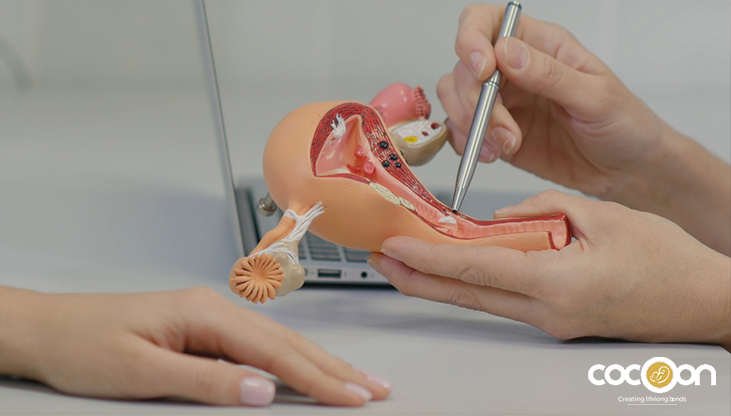You might have just undergone a recommended gynecological surgery, and you think your problem is fixed. This is where many women go wrong, because recovery after the surgery is just as important as the procedure itself; hence, knowing the key do’s and don’ts can make a big difference.
Gynecological surgeries, such as endometrial ablation for abnormal bleeding, hysterectomy for severe pain or endometriosis, or tubal ligation for permanent contraception, become important. These can be recommended by trusted specialists, such as those at Cocoon Hospital, when other treatments don’t show positive results, to help women manage their health concerns. Once the surgery is done, the real healing begins by following the right instructions.
The Do’s for Recovery After Gynecological Surgery
These tips, as per your doctor's recommendation, can help you recover faster and ensure the full benefits of surgery.
1. Walking But Gently
Your doctor can recommend gentle walking because of the following benefits:
- Good blood circulation at the healing site
- Oxygen delivery to tissues
- Decrease risks such as blood clots
- Support immune responses that speed healing.
2. Good Nutrition & Proper Hydration
Create space for protein-rich, vitamin- and mineral-packed foods on your plate. And always drink plenty of fluids. These support collagen formation and immune system function, which are important for tissue repair and infection prevention.
3. Mindful Caring of Your Surgical Incision
Always keep your incision area clean and dry to prevent bacterial growth and infection. This allows skin cells to create a protective barrier quickly, closing the wound safely and in a timely manner.
4. Say Yes to Breathing Exercises
Deep breathing exercises are known to increase lung capacity and oxygenation (the process of maintaining stable oxygen delivery to tissues). Practicing them regularly helps prevent pneumonia after surgery by clearing lung secretions and supporting respiratory function.
5. As Directed, Perform Pelvic Floor & Abdominal Exercises
If instructed, do pelvic floor muscle exercises and gentle abdominal muscle strengthening with proper technique.
These exercises have the following benefits:
- Better muscle tone
- Proper blood circulation and support for pelvic organs
- Accelerating functional recovery
- Reduce complications
Note: Perform these exercises with professional help only so that you can safely target the right muscle.
6. Resting is Key & Observe What Your Body Tells You
Never underestimate the power of adequate rest and sleep, because sleep is the time when major body repair and healing happen. Rest helps release growth hormone, which supports tissue repair.
Also, listen to your body’s signs; early recognition of unusual pain or swelling helps prevent post-surgery complications.
The Don’ts for Recovery After Gynecological Surgery
Avoiding these red flags can help get the full benefits of surgery.
1. Say No to Heavy Lifting (Over 3–4 kg for 4–6 Weeks)
Lifting heavy objects increases pressure inside the abdomen. This can unnecessarily stress healing tissues and sutures, risking wound separation or hernia formation.
2. No Engaging in Intimate Acts (For at Least 6–12 Weeks)
Refrain from romantic engagement until your doctor's approval. Early intimate activity opens the door for bacteria. This causes tissue trauma, postponing wound healing and increasing infection risk.
3. Never Say No to Wound Hygiene
Do not soak in baths or swim for several weeks, as prolonged moisture can imbalance the natural skin barrier and microbiome. This can slow skin cell repair and increase infection risk.
4. Do Not Be Completely Inactive
Yes, rest is the key for the healing process, but that does not mean total bed rest. Prolonged inactivity decreases blood flow, increasing risks of blood clots (also known as deep vein thrombosis) and reducing bowel and muscle function recovery.
Find the right balance between resting and gentle movement, and gradually increase your physical activity.
5. There Should Be No Rushing Back to Normal Routine
Rushing back to your normal routine and dietary habits is generally not recommended because Digestive and pelvic muscles need time to get back to their normal state.
Heavy work or eating spicy, fatty foods too early can cause strain or irritation, reducing healing.
6. Say No to Smoking & Alcohol
Smoking decreases oxygen supply to tissues and hampers immune system activity, delaying healing.
Alcohol can interfere with prescribed medications and disturb liver metabolism required for tissue repair. Hence, avoid both of them completely so that your body can do its repairing work properly.
7. No Stress is Required
Unnecessary mental and physical stress can impair healing by opening the door for stress hormones (cortisol) and inflammatory markers. Hence, there is no need to stress too much as long as you are aligned with your doctor’s advice.
8. Do Not Skip Your Follow-ups
Skipping your post-surgery follow-ups means your doctor will be unable to track your healing progress, and problems will remain unaddressed. This may increase the chances of further complications.
9. Never Ignore Constant Pain & Unusual Symptoms
Constant pain or discomfort may indicate complications. Missing early medical evaluation means potential infections, bleeding, or other issues can worsen.
Note: These Do’s & Don’ts tips after Gynecological Surgery are for educational purposes and are not intended to replace medical advice. Every surgery and recovery process is different; hence, follow your doctor’s advice only.
How to Know I Am Recovering | The Signs
Here are the top 9 signs signalling that you are recovering after gynecological surgery:
- Increase in your strength and energy levels
- Healthy sleep cycle
- Reduced need for pain medication
- Lower fatigue
- Improved digestion and appetite
- No redness, discharge, or signs of infection at the surgical site
- Absence of fever, chills, or unusual symptoms
- Emotionally feeling better
- Able to do daily usual activities
Note: If you are noticing these improvement signs, this does not mean to skip the follow-up scheduled by your doctor. Complete recovery will only be confirmed after medical evaluation.
Conclusion
Your doctor at Cocoon Hospital might have recommended gynecological surgery to provide relief from your issues. You have also given your time and energy to these surgical processes, so why not ensure you get the full benefits by complying with the dos and don’ts? All you need to do is avoid complications and allow your body to heal properly by simply following your doctor’s instructions carefully.
Ready to Say Bye to Your Gynecological Issues? If Yes!
Then contact us at 08929816349.
Our address: Airport Plaza, Tonk Rd, Chandrakala Colony, Mata colony, Jaipur, Rajasthan
contactjpr@cocoon.co.in
Cocoon Hospital Services
- Luxury Birthing
- Neonatology
- Gynae Surgery
- Stem Cell Preservation
- Wellness Program

















